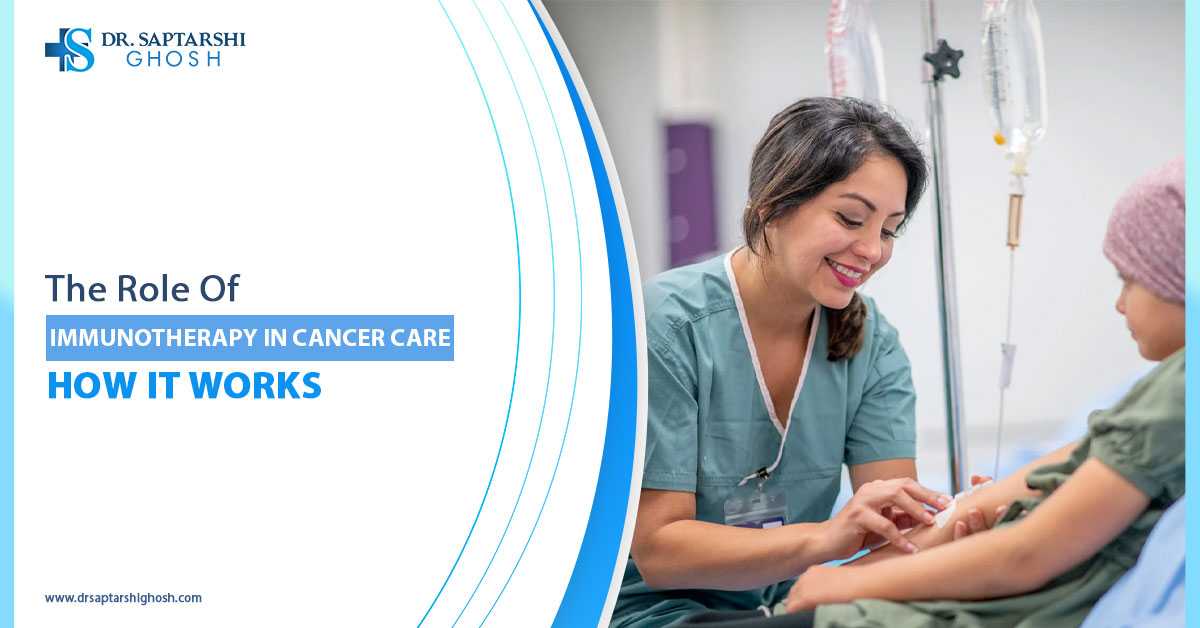Cancer is a widely spreading disease across the globe, which also has various advanced treatment options to ensure a speedy recovery. Starting from chemo and radiation to targeted therapy and surgery, the doctor might select the best cancer treatment in Siliguri based on your condition.
You must know that despite having high rates of recovery, cancer treatment options can lead to some chronic, unexpected, and unwanted side-effects that can deteriorate your quality of life. The long-term effects of cancer treatment often start after the treatment is over and can continue affecting you for several years.
Long-Term Effects Of Cancer Treatment Experienced By Cancer Survivors
1. Chronic fatigue
One of the most common long-term effects of cancer treatment is chronic fatigue. You must know that this cancer-related fatigue is extremely different than just feeling tired. The symptoms of fatigue may last for several months to even years which in most cases, doesn’t show any improvement with rest.
- How To Manage?
The oncologist might share with you some strategies to manage this fatigue which include eating a high-calorie diet, exercising regularly, getting enough sleep, and trying relaxation techniques. You can also consider speaking with a professional if the side effects don’t improve for a longer period.
2. Mental distress
It is quite common to see cancer survivors complaining about mental distress even after completing the entire cancer treatment plan. Herein, you can hear from the patients that they were not aware of such mental problems after recovery. Some such mental health issues that one can experience for a longer period are fear of recurrence, anxiety, post-traumatic stress, depression, and loneliness.
-
How To Manage?
The best way to manage this mental distress is to seek assistance from a mental health expert. Herein, the expert can recommend undergoing counselling sessions and specialized therapies when you can share your emotions and thoughts to ensure mental well-being.
3. Hormonal or endocrine problems
Immunotherapy, chemo, surgery, and radiation are some of the widely used cancer treatments by the best cancer specialists in Siliguri. Although these treatment options have high success rates, they can still lead to several serious endocrine and hormonal issues. Thyroid problems and disruptions in the production of testosterone and estrogen are some such problems that can lead to distressing symptoms.
-
How To Manage?
To manage endocrine problems, timely intervention is extremely essential. There are various medical and surgical options such as ovarian suppression and thyroid replacement medications which can provide you relief from these long-term complications.
4. Infertility
Radiation or chemotherapy near the pelvis, spine, and abdomen can lead to significant damage to the testes and ovaries. This damage can further increase the chances of infertility. In some cases, the fertility issues can be short-term but they can also be long-lasting when you may not be able to conceive. Both men and women can experience this complication due to ovarian damage, lower testosterone levels, and decreased sperm count.
-
How To Manage?
The ideal way to manage infertility associated with cancer treatment is by preserving sperm and viable embryos. Cryopreservation of the sperm and embryos will help you to do family planning even after the cancer treatment.
5. Hair loss
Another common long-term side effect experienced by patients undergoing chemotherapy is hair loss. The percentage of hair loss depends upon the type of drug used during the chemotherapy sessions. In most cases, the hair starts growing back after the completion of the treatment but the texture, color, and growth rate of the hairs can become different from before. There can also be instances when the hair loss can be permanent.
-
How To Manage?
To manage hair loss, you can consider cutting your hair short during the treatment. Herein, you can also protect your scalp and take good care of your hair so that it can grow back healthily.
6. Bladder and bowel issues
Are you suffering from bowel and bladder problems after undergoing cancer surgery or radiotherapy? Remember that these are also common long-term effects of cancer treatment in Siliguri which is experienced by most of the patients. The most common bowel issues that you might be concerned about are difficulty in controlling bowel movements, bowel obstruction, urinary incontinence, and urinary tract infections.
-
How To Manage?
Some of the effective ways to manage bladder problems are by avoiding bladder irritants and drinking a sufficient amount of water. Herein, you can also consider eating high-fibre foods to maintain bowel health.
7. Bone conditions
Another long-term effect that can be contributed by chemotherapy is bone conditions. During chemotherapy, the healthy cells in the marrow and bones are also damaged along with the cancerous cells which is considered the main reason behind the increased rate of bone conditions such as bone loss and osteoporosis. In some cases, hormone therapy can also affect the density of the bone causing various issues.
-
How To Manage?
The effective strategies to manage bone conditions after cancer treatment include medications, pain management techniques, and physical therapy. To stabilize the weakened bones, the doctor may also recommend bone cement.
8. Heart-related diseases
Some cancer survivors can also experience the symptoms of heart issues after cancer treatment, especially after chemotherapy sessions. Some of the most common conditions that one can suffer from are stroke, irregular heartbeat, high blood pressure, heart disease, congestive heart failure, and valvular disease. These conditions can also be common among patients who have undergone chest radiation therapy.
-
How To Manage?
Exercising regularly and eating a heart-friendly diet are the best ways through which you can maintain cardiovascular health after treatment. Herein, you can also take prescribed medications and avoid smoking to improve your life quality.
9. Cognitive problems
Chemo brain is one of the most concerning side effects of cancer treatment that can lead to cancer-related brain fog and cognitive impairment. If you suffer from this condition then you may experience thinking and memory problems. The other signs of chemo brain include difficulty learning new things, confusion, and short-term memory loss.
-
How To Manage?
There are various memory aids and therapies that can reduce chemo-brain symptoms. Herein, you can consider undergoing movement therapies, cognitive rehabilitation, or attention restoration sessions to ensure your cognitive health.
10. Vision changes
There are certain cancer medications and treatment options that can cause severe vision changes that can also be long-term. You must know that cancer treatments not only affect your vision but also increase your chance of developing various eye diseases such as glaucoma and cataracts. Some of the long-term signs of vision changes that you must never ignore are sensitivity, redness, and dryness.
-
How To Manage?
If you notice any abnormalities it is vital for you to consult an ophthalmologist immediately. The expert might recommend eye drops, glasses, or warm compresses to alleviate the distressing symptoms.
Before starting a cancer treatment in Siliguri, you must communicate with the oncologist clearly to understand the probable long-term side effects. Learning about the possible complications can help you make an informed decision regarding the treatment plan.
References:
Comments (0)





